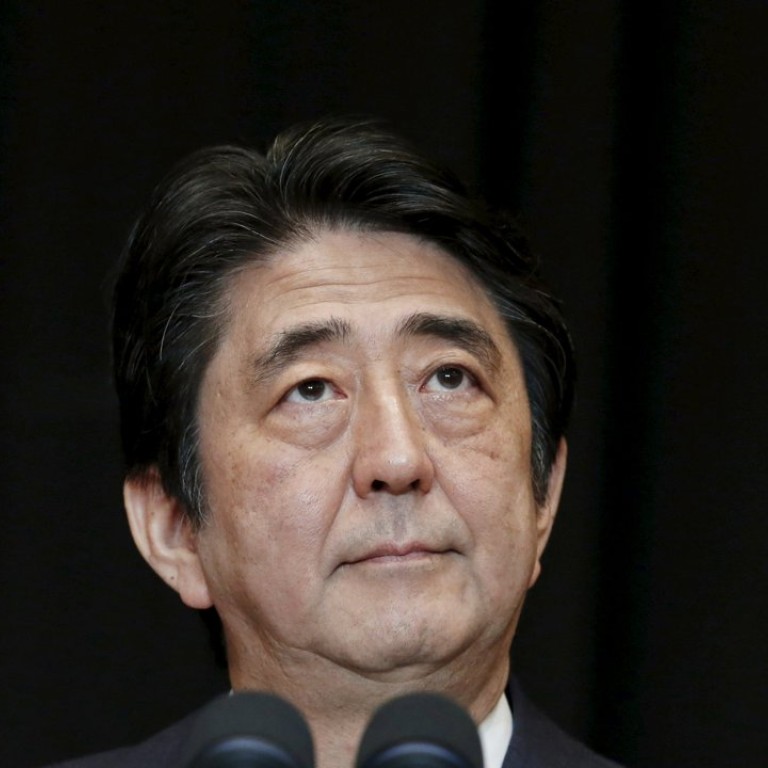
Japanese Prime Minster Shinzo Abe must rethink his policy on boosting economic growth
The time has come for Japan’s recovery, if they can shake off a history of stagnation
If ever there was a time for Japan to step up, it is now. China’s economy is slowing, European economies are in the doldrums, the US recovery remains fragile, and the possibility of a rate rise by the Federal Reserve next month jangles their nerves. Alas, the world’s third-largest economy remains mired in prolonged stagnation, unable to shake off a malaise that predates the global financial crisis. The Japanese economy shrank by a more-than-expected 0.8 per cent in the third quarter, extending a downturn that began the previous quarter and, technically, putting the country back into recession. It was the fifth quarterly decline since Shinzo Abe took office as prime minister in 2012. Abenomics, as his policy of sustained massive stimulus to end stagnation is known, has again failed to break a benign cycle of expansion and contraction.
Opinion: Japan’s doing OK, but demographic bomb ticking
To be sure, events have conspired to blunt its impact. A slowing mainland economy and falling demand for industrial and construction equipment is partly responsible for the latest slip in output. Last year, Japanese consumers were blamed for reacting to a sales-tax increase by curbing their spending. Once again economists do not expect any recession to be long, but the underlying picture is less sanguine. Business confidence is falling, with companies cutting investment in production and clearing stock, a sign they are going on the defensive.
It has to be remembered that because of a shrinking workforce and static gross domestic product for the last 20 years, potential growth is limited and the economy is easily pushed off course by headwinds. But the latest scorecard of Abenomics could prompt bolder criticism of the prime minister’s policies. So far they have lifted the stock market, lowered the exchange rate of the yen – to the benefit of multinational companies – and helped curb consumer price deflation, yet failed to impact much on incomes, spending and investment, key drivers of growth. Abenomics is more than stimulus.
The key remains the so-called “third arrow” of Abenomics - structural reforms such as ridding the economy of an inflexible labour market and over-regulation of business and greater participation by women in the workforce.
The government insists a gentle recovery remains on track, with positive job and income signs. Officials are reported to be working on a big new spending package. But Abenomics is not working at a time when the world badly needs Japan to help China shoulder a disproportionate share of global growth. Abe needs to rethink his strategy as boldly as he has pursued it.

